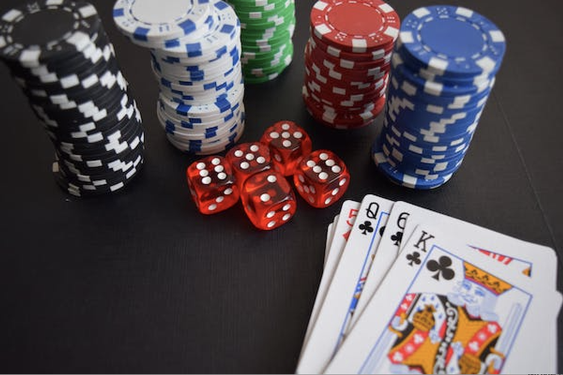Even if that opponent is one of the best players in the world.
And even when you are holding garbage.
At the 2006 L.A. Poker Classic main event, with the blinds at $400-$800, plus a $100 ante, Chip Reese was putting a lot of pressure on his opponents. Reese, the youngest player ever inducted into the Poker Hall of Fame (at age 40 in 1991) and a regular in the "Big Game" at Las Vegas‚ Bellagio with the likes of Doyle Brunson, Phil Ivey and Barry Greenstein, had been playing a lot of pots, mostly raising pre-flop.
Chris Bigler, the classy pro from Switzerland who reached the final table of the 1999 World Series of Poker main event, wanted to find a way to slow down Reese and decided to make a move, while holding 7-5 off suit in late position
"Complete trash," Bigler says ˆ after Reese raised to $2,400."I called to see if I could flop something and make a hand and maybe outplay him, because I like to play with the best in the world.
The flop came K-Q-6, rainbow, which did nothing for Bigler's hand.
Nonetheless, when Reese bet out about half the pot, Bigler called.
The turn paired the 6, again doing nothing for Bigler's hand.
"He checks," Bigler says, "and I move in on him for $30,000, and he laid the hand down. Afterwards, he said, Œwe both had kings,‚ and I said, Œyeah, the queen played. It was a stone-cold bluff. But don‚t tell him today. You can tell him later."
While most poker books, DVDs and the pros themselves believe calling is a weak response, in this case, it became a strength. If Bigler was able to call a half-pot bet, then Reese likely believed Bigler had something that might beat him. When Reese checked on the turn, Bigler seized his chance.
"The thinking behind the betting pattern was, if he shows weakness, I was going to move in on him," Bigler says. "He's capable of laying a hand down. That‚s a little too much of giving away secrets."
The play is common, but sometimes risky: calling on the flop with the intention of taking the pot away on a later street. Your best chance to pull it off is when you have position on your opponent the way Bigler did.
Bigler's play also is a lesson for amateurs facing top players. One thing about the best players in the world: they‚re capable of laying down hands.
In fact, many pros pride themselves on it.
But know this: Their willingness to lay down a hand in the face of a strong betting pattern also depends on what they think of their opponent, and if it‚s you, then you had better have a good read on yourself and what this particular pro thinks of your game.



